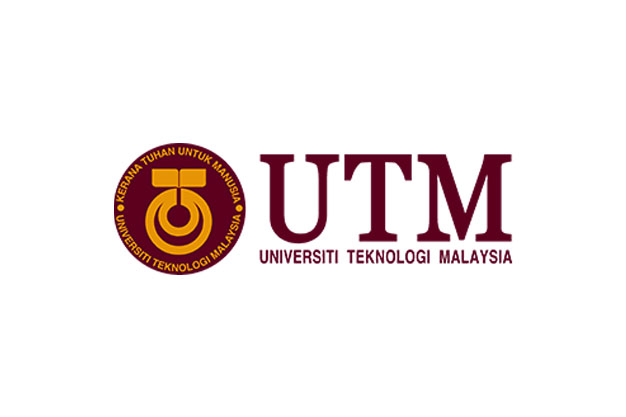UTM
UniversitiTeknologi Malaysia (also known as UTM) is a public research-intensive university in engineering, science and technology located in Iskandar Puteri, Johor and it has a branch campus in Kuala Lumpur. UTM is a graduate-focused university. UTM has a total student of 15956 (26% postgraduate), 3156 international students (82% postgraduate), and a total faculty staff of 2297 (265 international).
The history of UTM began in 1904 when a technical school began operation on Weld Road (now Jalan Raja Chulan) to teach Technical Assistants for the Federated Malay States Departments of Railways, Survey and Public Works. In 1941 the Advisory Committee of Technical Schools recommended that the school be elevated to college status and proposed that a new technical college be constructed. The new college was to be built on a 47-acre piece of government land in Gurney Road (now Jalan Sultan Yahya Petra), Kuala Lumpur.
In 1960 the college began a new era by upgrading its engineering courses to the degree level. Student following courses at the college sat for professional examinations conducted by the Institution of Civil Engineers and Institution of Mechanical Engineers, United Kingdom & the Royal Institute of British Architects, as well as the Royal Institute of Chartered Surveyors. Students for the professional courses were drawn from government servants for the Federation of Malaya Singapore, Borneo and Brunei.
On 14 March 1972, Malaysia’s Ruler, Royal Highness Seri PadukaBaginda Yang DipertuanAgong proclaimed the formation of InstitutTeknologiKebangsaan (National Technology Institute) (ITK) under section 6(1) of the University & University College Act 1971. The institution inherited all the amenities and facilities of the former Technical College of Gurney Road. On 1 April 1975, the journey from school to university was completed when the institution became UniversitiTeknologi Malaysia (UTM). In 1976, the government approved the university constitution and the university Senate and Council were established.
On 3 December 3 1977, UTM witnessed its first group of 65 graduates being conferred their degrees in the inaugural convocation ceremony in Kuala Lumpur, graced by the Royal Highness Almarhum Sultan Ismail IbniAlmarhum Sultan Ibrahim, the first Chancellor of UTM.
The university moved to a new campus located on 2,400 acres of land in Skudai, Johor. Construction works had begun in 1978 and the campus opened on 16 September 1985 by His Majesty Sultan Iskandar IbniAlmarhum Sultan Ismail, then the Yang di PertuanAgong, in his capacity as his capacity as the second Chancellor of UTM.
UTM's has regional and international academic collaborations, including Intel, Altera, and Proton. UTM is one of the few public universities in Malaysia that has attained research university status, opening avenues for research and industrial collaboration through government research grants.
On 8 January 2012, the Malaysian Ministry of Higher Education declared UTM to be the first Malaysian university to attain full autonomy from the government. This allows the university to select the best of the regional students, as well as handle most of the management internally for a more efficient administration.
Since becoming a research university, UTM is committed to becoming a graduate-focused university; more innovative research-based postgraduate programmes are offered and more attractive and varied modes of PhD programmes implemented. This not only provides flexibility in postgraduate study approaches, but at the same time contributes to increased publications and citations, while enhancing technological development and a value-driven economy.
Through a strategic transformation of its organisational structure, UTM is focused on creating a vibrant knowledge culture and fertile intellectual ecosystem that inspire creativity, innovation and entrepreneurial mindsets. This is also in tandem with the transformation plan of the Ministry of Higher Education to turn Malaysia into an educational hub renowned for high quality educational standards and research excellence in strategic key areas of knowledge and specialised disciplines as well as multi-disciplinary fields.
UTM aims to achieve the status of a global university and rank among 50 of the world's best universities by 2020.In July 2018, UTM began an organisational re-shuffling exercise, nicknamed “Synergy 4.0”, to consolidate the 18 schools established in 1972 and used until 2018, to only 7 major faculties.
Mission
To lead in the development of holistic talents and innovative technologies for universal well-being and prosperity.
Vision
To be a premier global academic and research institution, excelling in science, technology and engineering.
Strategic Thrusts
T1. Holistic, Innovative and Entrepreneurial Academia
T2. Academic and Research Excellence
T3. Global Prominence
T4. Leading Industry and Community
Faculties, Schools and Departments (after July 2018 consolidation)
Faculty of Science
• Physics
• Chemistry
• Mathematical Sciences
• Biosciences
Faculty of Engineering
• School of Chemical and Energy Engineering
• School of Electrical Engineering
• School of Civil Engineering
• School of Mechanical Engineering
• School of Biomedical Engineering and Health Sciences
• School of Computing
Faculty of Built Environment and Surveying
• Geoinformation
• Real Estate
• Quantity Surveying
• Architecture
• Landscape Architecture
• Urban Regional Planning
Faculty of Social Sciences and Humanities
• School of Education
• School of Human Resource Development and Psychology
• Islamic Civilisation Academy
• Language Academy
• Centre for Advanced Studies on Islam, Science and Civilisation (CASIS)
Razak Faculty of Technology and Informatics
• Engineering Technology
• Science, Management and Design
• Advanced Informatics
• Perdana Centre
Malaysia-Japan International Institute of Technology (MJIIT)
AzmanHashim International Business School
• Business Administration, UTM Kuala Lumpur
• Business Administration, UTM Johor Bahru
• Accounting and Finance, UTM Johor Bahru
• Information System, UTM Johor Bahru
School of Professional and Continuing Education (UTM SPACE)


